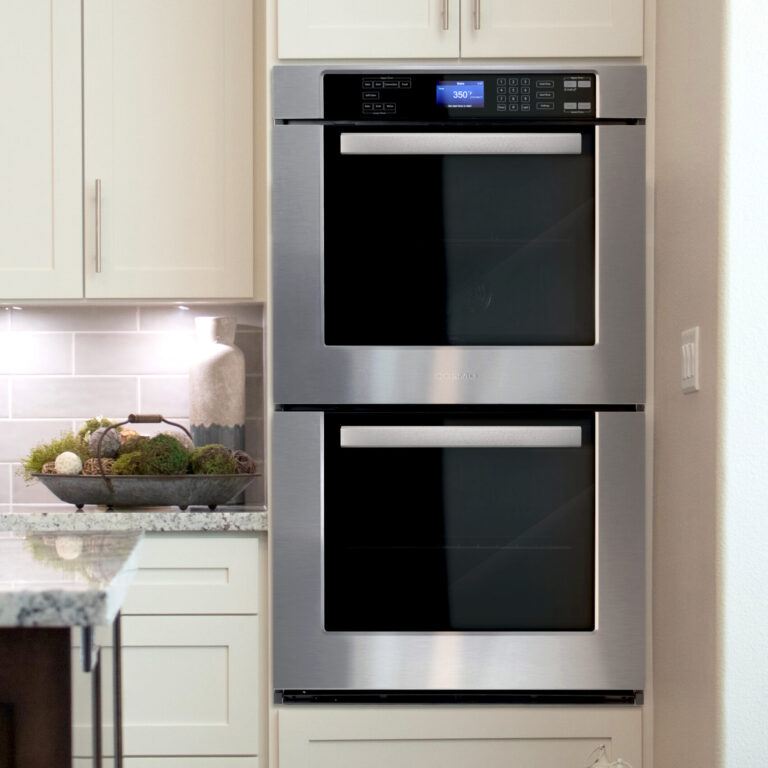Single vs. Double Wall Ovens: Choosing the Right Configuration for Your Kitchen
When designing or renovating your kitchen, choosing the right appliances is crucial to creating a functional and stylish space. One of the most significant decisions you’ll face is selecting between a single and double wall oven. Each configuration has its benefits and considerations, and the best choice depends on your cooking habits, kitchen layout, and lifestyle. Let’s explore the differences to help you make an informed decision.
Single Wall Ovens
Pros:
- Space-Saving: Single wall ovens are ideal for smaller kitchens or where space is limited. They can be installed under the counter or within a wall cabinet, maximizing your kitchen layout.
- Cost-Effective: Generally, single wall ovens are less expensive than double ovens, making them a budget-friendly option for many households.
- Simplicity: With one oven to manage, operation is straightforward, which can be a plus for those who prefer simplicity in the kitchen.
Cons:
- Limited Cooking Capacity: Single ovens may not provide enough space for cooking multiple dishes simultaneously, which can be a drawback during holidays or large gatherings.
- Reduced Flexibility: With only one oven, you might have to adjust cooking times and temperatures for different dishes, potentially complicating meal preparation.
Double Wall Ovens
Pros:
- Increased Cooking Capacity: Double ovens offer the ability to cook multiple dishes at different temperatures simultaneously, making them perfect for large families or those who love to entertain.
- Versatility: With two ovens, you can bake, roast, and broil different items at the same time without worrying about flavors mixing or cooking times conflicting.
- Convenience: Double ovens can make meal prep more efficient, allowing you to manage large and complex meals with ease.
Cons:
- Space Requirements: Double wall ovens require more vertical space, which might not be feasible in smaller kitchens or where cabinet space is at a premium.
- Higher Cost: They are generally more expensive than single ovens, both in terms of the initial purchase price and installation costs.
- Increased Energy Use: Running two ovens can consume more energy, potentially leading to higher utility bills.
Key Considerations for Choosing the Right Configuration
- Cooking Habits: Assess how often you cook and the types of meals you prepare. If you frequently cook for large groups or enjoy making elaborate meals, a double oven may be more beneficial.
- Kitchen Space: Evaluate your kitchen layout and available space. A single oven might be more suitable for compact kitchens, while a double oven requires more vertical cabinet space.
- Budget: Consider your budget for both the appliance and installation. Single ovens are typically more affordable, but if your cooking needs justify the expense, a double oven can be a worthwhile investment.
- Future Needs: Think about your long-term cooking needs. If you plan to entertain more or expect your family to grow, investing in a double oven could be a future-proof decision.
- Energy Efficiency: Consider the energy usage of each option. While double ovens offer more flexibility, they can also lead to higher energy consumption.
Choosing between a single and double wall oven ultimately comes down to your personal cooking style, kitchen space, and budget. Single wall ovens are perfect for smaller kitchens and simpler cooking needs, offering a cost-effective and space-saving solution. Double wall ovens, on the other hand, provide unmatched flexibility and capacity for those who love to cook and entertain. By carefully considering your requirements and kitchen layout, you can select the oven configuration that best suits your lifestyle, ensuring many delicious meals and enjoyable cooking experiences for years to come.

